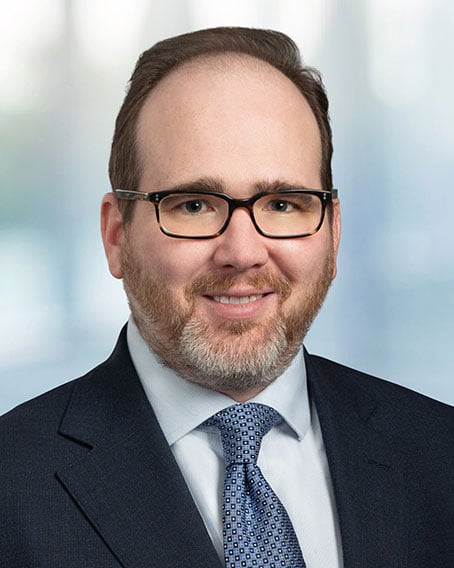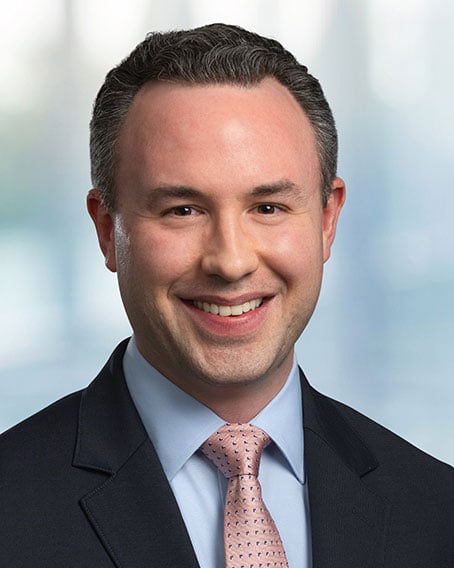Key Takeaways
On March 28, 2023, the Sixth Circuit affirmed the dismissal of the qui tam complaint in a False Claims Act (“FCA”) case premised on the “resulting from” language in the Anti-Kickback Statute (“AKS”). As amended in 2010, the AKS provides that a claim submitted to the government for payment “resulting from” a violation of the AKS is per se false for purposes of the FCA. In its March 28, 2023 decision, the Sixth Circuit held that this “resulting from” language requires a showing of but-for causation. In United States ex rel. Martin, et al. v. Hathaway, et al., __ F.4th __ (6th Cir. 2023), the court held that the relator failed to demonstrate that the alleged false claims would not have been made but-for the alleged kickbacks, and that the relator therefore failed to state a claim. The court also interpreted the meaning of “remuneration” under the AKS, holding that “remuneration” should be interpreted narrowly to extend only to actual payments and other transfers of value.
Background
Dr. Martin, an ophthalmologist, and her husband brought a qui tam complaint against Oaklawn Hospital, South Michigan Ophthalmology, P.C. in Marshall, Michigan (“South Michigan,” her former employer), and Dr. Hathaway (South Michigan’s sole owner, also an ophthalmologist).
According to the opinion, South Michigan and Oaklawn Hospital referred patients to each other for many years. This was the natural result of South Michigan’s being the only locally based ophthalmology practice and Oaklawn Hospital’s being the most convenient local hospital. Beginning in 2018, South Michigan considered a merger with another ophthalmology practice located in Lansing, Michigan. In response, Dr. Martin, then employed by South Michigan, pursued employment with Oaklawn Hospital. At that time, Oaklawn Hospital wished to hire her as an employed physician in part because it believed that South Michigan would begin referring its patients elsewhere after the merger. Oaklawn Hospital extended Dr. Martin a tentative employment offer subject to board approval.
Dr. Hathaway soon communicated to Oaklawn Hospital that he anticipated directing more referrals to Oaklawn Hospital post merger. He indicated that Oaklawn Hospital’s employment of Dr. Martin would effectively destroy his business because Dr. Martin, as a hospital-employed physician, would absorb all ophthalmology referrals. According to the opinion, Dr. Hathaway further indicated that if Oaklawn Hospital employed Dr. Martin, he would be forced to direct his referrals elsewhere. Oaklawn Hospital’s board voted against employing Dr. Martin.
In her complaint, Dr. Martin alleged that Oaklawn Hospital, South Michigan, and Dr. Hathaway engaged in a fraudulent scheme under the AKS and that Oaklawn Hospital’s claims for Medicare and Medicaid reimbursement resulting from the alleged kickbacks violated the FCA.
Sixth Circuit Decision on AKS Causation
Addressing whether the alleged AKS violation caused Oaklawn Hospital to submit false claims to the Medicare and Medicaid programs, the Sixth Circuit held that the AKS’s “resulting from” standard requires a showing of but-for causation. According to the Sixth Circuit, that meant Dr. Martin needed to demonstrate that Oaklawn Hospital would not have submitted the applicable claims for payment but-for the alleged AKS violation. The Sixth Circuit concluded that Dr. Martin could not make that showing, determining that the alleged AKS violation “did not change anything” with respect to referrals between Oaklawn Hospital and South Michigan. Specifically, because South Michigan and Oaklawn Hospital “naturally referred Marshall-based patients to each other” before the alleged kickbacks and “the same relationship continued just as it always had” after the alleged kickbacks, Dr. Martin had failed to identify any procedure “that would not have occurred anyway . . . .”
The court’s opinion aligned with the approach of a recent Eighth Circuit opinion, which reasoned that the AKS’s “resulting from” standard unequivocally requires but-for causation. United States ex rel. Cairns v. D.S. Medical L.L.C., 42 F.4th 828, 834–36 (8th Cir. 2022). The court reasoned that the FCA applies to all kinds of fraud claims without regard to whether the underlying claim has a causation component and, in doing so, rejected the Third Circuit’s discussion of causation in United States v. Greenfield, 880 F.3d 89 (3d Cir. 2018). The Sixth Circuit further rejected the government’s amicus curiae argument that, because Congress sought to expand the reaches of the FCA in amending the AKS, the government should not be required to show but-for causation to prove an FCA violation premised on an alleged AKS violation.
Sixth Circuit Decision on AKS Remuneration
The court also addressed whether Oaklawn Hospital’s alleged decision not to hire Dr. Martin in return for a general commitment of continued and increased referrals from Dr. Hathaway constituted “remuneration” to Dr. Hathaway under the AKS. It rejected this theory, holding that “remuneration” under the AKS extends only to payments and other transfers of value, not to every act that may be valuable to another.
The Sixth Circuit engaged in a wide-ranging analysis of the definition of “remuneration,” touching on mainstays of statutory interpretation, how “remuneration” is used in the AKS safe harbors, and how the Department of Health and Human Services, Office of Inspector General (“OIG”) has described “remuneration” in past guidance. The Court concluded that each of these considerations weighed in favor of interpreting “remuneration” narrowly as limited to payments or transfers of value and highlighted that a more expansive reading would lack “a coherent end point.” For example, should a hospital’s purchasing of state-of-the-art surgery equipment in hopes of attracting new doctors constitute “remuneration” under the AKS? The Sixth Circuit said no.
Applying this standard, the Sixth Circuit held that Oaklawn Hospital’s alleged agreement not to hire Dr. Martin in exchange for Dr. Hathaway’s referrals did not constitute “remuneration.” Acknowledging that the decision “may have benefitted Dr. Hathaway,” the court found determinative that the hospital’s purported agreement never resulted in a payment or other transfer to Dr. Hathaway.
Implications
As the Sixth Circuit joins the Eighth Circuit in adopting a but-for causation standard under the AKS, this trend should be closely followed as it holds potentially favorable implications for defendants facing enforcement of the AKS under the FCA. So too does the Sixth Circuit’s narrower framing of “remuneration,” which forecloses AKS liability in the Sixth Circuit in instances when the purported remuneration is theoretical or intangible.
Authors
Stay Up To Date with Ropes & Gray
Ropes & Gray attorneys provide timely analysis on legal developments, court decisions and changes in legislation and regulations.
Stay in the loop with all things Ropes & Gray, and find out more about our people, culture, initiatives and everything that’s happening.
We regularly notify our clients and contacts of significant legal developments, news, webinars and teleconferences that affect their industries.




